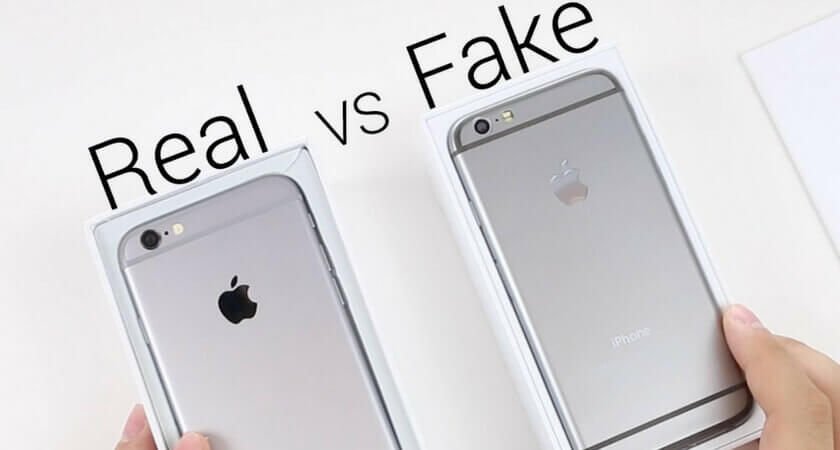- January 15, 2019
- Posted by: admin
- Category: ABC Articles

Appropriate laws and institutions to oversee the regime for control of counterfeits have been put in place in Tanzania. The country has also signed and ratified a number of international treaties on the protection of Intellectual Property Rights (IPRs) so as to bring its posture to international standards. The IPR laws include for instance the Paris Convention for the Protection of Industrial Property (1883), the Trade Mark Law Treaty (1981), Lusaka Agreement establishing ARIPO, The Harare Protocol, WIPO Treaty (1970) and UPOV. IP laws which (apart from copyright) are administered by the Business Registration and Licensing Agency (BRELA) established since 1997. Specifically, Tanzania has promulgated laws to deal with piracy and counterfeits, such as: (i) The Trade and Service Marks Act of 1986, (ii) The Copyright and Neighbouring Rights Act of 1999 which prominently includes provision against the manufacture or modification or importation for sale or renting of any device whose copyright is already established (without explicit permit from the original copyright owner). The law lays down specific punitive actions to set out to the culprit. If this Act were effectively enforced, it could possibly have been able to reduce piracy to a considerable degree in this country. But this has not been the case. There are also other relevant Acts like The Merchandise Marks Act of 1963 (operationalised only since in 2005) that specifically prohibits importation of counterfeits and empowers appropriate officers to seize, detain, forfeit or dispose the counterfeits with fines imposed on the culprit. It empowers the Fair Competition Commission (FCC) to investigate go-downs and premises suspected to hold illicit goods. The FCC joins other institutions in the forefront engaged in efforts to deal with challenges of counterfeits, pirated and substandard products like the Tanzania Food and Drugs Authority (TFDA), Tanzania Bureau of Standards (TBS), BRELA, Tanzania Revenue Authority (TRA), EWURA, the Attorney General’s Chambers and the Police Force. Apart from some of these institutions being weakened for lack of funds or manpower, there is in the country general lack of good governance related to fragrant disregard of established laws by citizens.
The fight against counterfeit in Tanzania is in line with the functions of the Fair Competition Commission which is mandated to administer The Merchandise Mark Act 1963 (as amended from time to time) The Act makes dealing in counterfeit a criminal offence in Tanzania .
According to the 2007 amendments to Merchandise Marks Act 1963 any person convicted for dealing in counterfeit goods(medicine inclusive )shall be liable to imprisonment term of 4 to 15 years or fine of 10-50 million or both (fine and imprisonment).Furthermore the goods shall be seized and destroyed at the owners costs.
The Merchandise Marks Act of 2007 is the law which governing counterfeits; it is implemented by the Inspector who is also FCC Director General .The law is enforced by impounding and fining on site or taking the counterfeiters to court. If culprits accept the offence the can be fined as stipulated by law and ordered to pay destruction costs.
According to Merchandise Mark Act, No.20 of 1963 as amended, Section 12 of the said Act provide on the procedural issues required, that the inspector or any police officer in the rank of inspector has a power of entry and conduct inspection .That with this the Inspector has power to enter with or without warrant and inspect the premises in which he has reason to believe that an offence has been or is about to be committed, may examine goods, all books and documents relating thereto.
After that the inspector or his representative has to report to the Magistrate. The court before whom any person is convicted an offence of which against the Act may declare any goods in respect or by which the offence was committed to be forfeited. Any goods or things forfeited may be destroyed or otherwise disposed as the court may direct.
The Merchandise Mark Regulation of 2010; Chief Inspector has been empowered to conduct summary proceedings against any suspects upon receiving a complaint from any person who has reasonable grounds to suspect an importation or exportation of counterfeit goods or pirated goods in violation of his IP rights, the regulation has provide for the procedural issues to be taken into account when instuting a claim;
- A claim shall be made in Form L prescribed in the First Schedule of the said regulation
- A claim to be submitted to the Chief Inspector or his representative who shall endorse the date on which it was received and thereafter enter and cause to be entered into the register.
- Upon receiving a claim the Chief Inspector or his representative shall issue a notice of hearing in Form M prescribed in the first Schedule showing time, date, place where the hearing shall be conducted.
- Service of the notice and acknowledgement of receipt of such notice by endorsing it.
- The Chief Inspector shall establish a committee for hearing a claim.
- The determination of any matter shall be by majority of the votes of members present.
- The chief Inspector or his representative may call any person to attend at the hearing and give evidence and may order any person to produce any document if he believes that such evidence or document will assist in his deliberation.
- The proceedings before the committee shall not be bound by strict rules of evidence.
- The records and decision of the committee shall be signed by the Chairman and the member’s presents.
The most appropriate enforcement authorities which will be effective are FCC and Chief Inspector.
